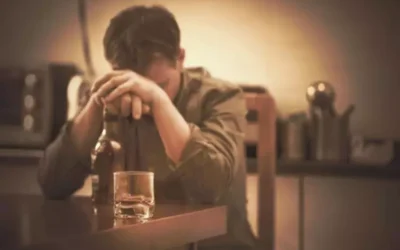Sleeping Medications Used for Insomnia May Combat Drug and Alcohol Addiction
Content
A 2019 study showed that individuals who sleep for under 6 hours each night have a 20% higher chance of heart attack than individuals who sleep between 6 and 9 hours. See how your sleep habits and environment measure up and gauge how adjusting behavior can improve sleep quality. When setting up an appointment, ask about the treatment approach and what to expect.
Additionally, low-to-moderate alcohol consumption is always the best practice for minimizing sleep disruptions or health concerns. The CDC defines moderate drinking as two or fewer drinks for males, and one or fewer for females, in a given day. However, in the second half of a night’s sleep, alcohol diminishes the amount of REM sleep. Alcohol’s negative effects on sleep quality worsen after several nights of drinking. Individuals with insomnia have difficulty maintaining a consistent sleep schedule.
Eating Disorder Awareness Week 2023
Cognitive-behavioral therapy (CBT) is a popular, evidence-based treatment method for alcohol use disorder and many other mental health disorders. For the treatment of either disorder to be effective, both insomnia and substance abuse should be addressed together. Someone in recovery from alcohol use may experience setbacks because of sleep-related withdrawal symptoms. For this reason, a person may need to drink increasing amounts to fall asleep, increasing the risk of alcohol abuse and addiction. Researchers have found that insomnia is a risk factor for alcohol abuse.
Completing alcohol detox often lessens your trouble sleeping without alcohol. However, it is common for alcohol withdrawal insomnia to last for months, which must be addressed in treatment. Behavioral therapies are common treatments for alcohol withdrawal therapies.
Find Lasting Recovery for Alcohol Use Disorder at Sana Lake Recovery
Alcohol withdrawal can begin within hours of ending a drinking session. The release of these substances can cause a person to fall asleep more quickly, but it can also disrupt their sleep patterns later in the night. This can lead to fragmented sleep, with frequent awakenings or a feeling https://ecosoberhouse.com/article/rappers-that-struggle-with-addiction/ of restlessness. Although it was initially considered to have low abuse potential, this has recently been questioned (Sansone and Sansone, 2010). Our search revealed a single, open-label trial of quetiapine used to treat psychiatric symptoms and alcohol consumption and cravings.

They are also preferred over medication therapy since some medications can lead to a recurrence of use. Alcohol may aid with sleep onset due to its sedative properties, allowing you to fall asleep more quickly. However, people who drink before bed often experience disruptions later in their sleep cycle as liver enzymes metabolize alcohol. This can lead to excessive daytime sleepiness and other issues the following day. Drinking to fall asleep can build a tolerance, forcing you to consume more alcohol each successive night in order to experience the sedative effects. Insomnia is a common condition where a person has trouble falling asleep or staying asleep.
How to prevent disrupting sleep after drinking
Stopping the use of alcohol because it is causing problems in your life takes courage and commitment. There are both psychological and physical hurdles to overcome when seeking sobriety. Alcohol has been shown to negatively impact sleep, but this comes down to the individual. An uncomfortable sleep environment can make getting a good night’s rest challenging. Drinking alcohol in moderation is generally considered safe but every individual reacts differently to alcohol. As a result, alcohol’s impact on sleep largely depends on the individual.
- But he and other experts think that brain chemicals that cause wakefulness are somehow stimulated when your body finishes burning off the alcohol in your blood.
- Of the initial 23 patients, 4 relapsed to alcohol use (Fabre et al., 1977).
- If available in your area, meet with a sleep medicine specialist in person for your sessions.
- You also can look for self-help books and online resources for guidance on CBT techniques for insomnia.
- However, among sleep measures, only the WASO was improved at 28 days when compared with placebo.
Questionnaires used to measure insomnia are varied and not all of them are standardized. The studies in our systematic review used different measures of insomnia, making comparisons difficult. In addition, the studies have had varying patient populations, in different types of alcoholism treatment and in various stages of recovery. The course of sleep problems in early recovery is poorly understood and comparing studies recruiting patients who are in different stages of recovery is difficult. The studies have not uniformly measured alcohol relapse, with some studies not including any measures to identify alcohol relapse.
Complementary Therapy
Everyone’s situation, drinking history, and health are unique, so I recommend starting with your doctor for chronic sleep issues. Now, if you’re a busy person with a tightly set schedule, these times might not work for you, and that is okay. However, avoid exercising 1-2 hours before bed, as this can create a level of activity in your brain that makes it hard to settle down and get to sleep.
Why can’t I sleep the night after drinking?
Multiple studies have confirmed the effect this can have – drinking disrupts our master biological clock, limits the production of melatonin (also known as the sleep hormone), elevates levels of adenosine (which makes us feel sleepy when we've been awake for a long time) and forces our liver to work harder.
One potential explanation is that circadian misalignment, which is common among individuals with insomnia, alters the elimination process of alcohol metabolism, the researchers wrote. Many of the enzymes involved in alcohol metabolism demonstrate time-of-day-dependent alcohol insomnia variations in activity. If circadian misalignment alters the activity of these enzymes, then it may alter the rate at which alcohol is eliminated from the body. That is why alcohol detox and alcohol withdrawal treatment is administered by medical professionals.
Also, some prescriptions come with the risk of serious side effects, including dependence, withdrawal symptoms, amnesia and thoughts about suicide. Most commonly, these medicines can make you tired when you need to be alert, for example, at work or while driving. It’s common for people to try sleeping pills available without a prescription before seeking help for insomnia.

People who struggle with chronic insomnia (beyond alcohol sleep deprivation) may need more than lifestyle changes to sleep better. Behavioral therapy is a great way to get to the root cause of insomnia. A relaxing bedtime routine that’s the same each night signals to your body and mind that it’s time for sleep. Read a book, take a bath, drink a cup of tea—whatever calms you down. With this therapy, your therapist will help you set a time limit for how long you can spend in bed, like 5 hours the first week. You are essentially retraining your brain to expect to sleep when in your bed.